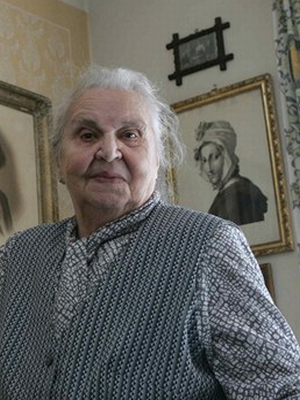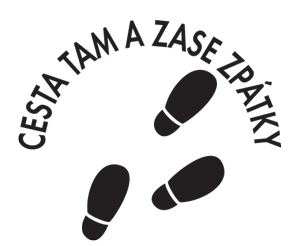The Expulsion of the Nohavička Family
 BRNÍČKO, 1951
BRNÍČKO, 1951
Jiří Nohavička, a former legionary, moved to Brníčko at the end of the Second World War. Within several years, he transformed a devastated homstead into a thriving farm, the largest in the village. In 1951, however, the local National Committee decided to confiscate the farm and expell the family without any compensation. The repression affected all members of the family: Mr. Nohavička, his son and also his daughter-in-law, Jarmila Nohavičková. And it was she, who, was able to reinstore justice.
JIŘÍ NOHAVIČKA
Jiří Nohavička was the owner of a farm in the village of Brníčko near Uničov from where his family was expelled in 1951.
He was born in Loučany on November 14, 1897.
During the First World War, he fought on the eastern front and became a POW. In 1917, he entered the Czechoslovak Legions.
„He didn't come home from the war until 1920. He had to travel across the Trans-Siberian Railway to Vladivostok to wait for a ship to take him to America and through America he returned home. It took two years."
At first, Jiří Nohavička and his family lived in Loučany, later they moved to a legionary colony in Baťany, Slovakia. After the Second World War, they moved into the abandoned house in Brníčko and rebuilt it into a prosperous farm. His son, also called Jiří, married Jarmila Chytilová in 1946.
In 1951, local authorities confiscated the farm and Jiří Nohavička was sentenced to six months of forced labor.
After the events of 1951 and the expulsion of the family from Brníčko, the family moved back to Loučany. Mr. Nohavička worked in a factory in Lutín, called Sigma. He died in 1972, nine months after his wife, without ever being given his due.
JARMILA NOHAVIČKOVÁ (NÉE CHYTILOVÁ)
Jarmila nohavičková was born od July 17, 1923 in Ústín. Her parents were both teachers, a profession which entailed frequent moving. Finally, the family settled in Loučany. Jarmila graduated in pedagogy and became a teacher like her parents.
In 1946, she married Jiří Nohavička and moved to Brníčko to live on the farm of her husband's parents. Two children were born, a daughter, Jarmila, and a son, Jiří. At that time she worked as a teacher in Uničov.
Then came the December of 1951. The family was forced to move out and Jarmila lost her job. They found shelter at her parents' house. She found it very hard to find another teaching position. After a while she found a teaching position in Drahanovice, but illegally, without any documents. Then she was employed at the school in Náměšť – that's when, officially, she became a teacher again, and kept the position there until retirement. Her husband worked as a lathe operator. However, the work had such a devastating effect on his lungs, that he spent the last years of his life in dependence on an artificial oxygen supply. He died in 1995, four years later, Jarmila Nohavičková also lost her son Jiří.
In the nineties, during her husband's illness, despite her age and lack of funds, Jarmila Nohavičková decided to demand restitution and moral satisfaction. It took many years. She finally won her fight for justice in the spring of 2011.
THE EXPULSION OF 1951
The farm of Jiří Nohavička was the largest in Brníčko and represented a welcome would-be acquisition to the newly-created IAC (Integrated Agricultural Cooperative). „One night, someone, we never found out who, took away our two cows and our tractor.“ That was how it began.
Later, Mr. Nohavička was accused of a criminal offense because he failed to deliver the required amount of milk. He was charged a very high fine. When he wanted to settle it he found out his account had been blocked. The local representatives of the IAC didn't need his money – they needed his land.
On December 3, 1951 two police cars drove into the court of the farm to arrest Jiří Nohavička. They took him to Šternberk in chains and later, he was sentenced to six months of forced labour. His family remained at the farm and the locals were forbidden to help them.
On December 8, there was a meeting of the local National Committee. The last point on the agenda was the Nohavička farm: „Upon a suggestion made by the Local National Committee and the District National Committee in Šternberk, it has been decided that, after the removal of Mr. Nohavička, no. 8 with the adjoining fields should be alloted to the IAC in Brníčko. The decision was unanimous.“ These few lines sealed the fate of the entire family.
The family was allowed to take only as much as would fit into a truck they had to borrow. The remainder was sold, in a large part to the family of Ladislav Nakládal, the Local National Commitee chairman. There was no room left in the truck for Ms. Nohavičková or the children so she had to walk all the way from Brníčko to the station in Uničov. „Jaruška was four. I was amazed that shewas able to walk such a distance. Little Jiří slept on my shoulder all the way to Uničov.“
THE TRIAL
After the fall of the totalitarian regime, Ms. Nohavičková began to work toward the retribution of her past wrong: she demanded the restitution of the family property and punishment for those who orchestrated the expulsion. She gave the police archived documents as evidence, including the expulsion order signed by Ladislav Nakládal. Legal action was brought against Nakládal in 2009 at the District court of justice in Olomouc, accusing him of the abuse of power. The court found him guilty but Nakládal appealed to the Regional Court.
The final verdict was ruled on March 4, 2011, once again in favour of the prosecution. Nakládal was found guilty and sentenced to eighteen months under conditional discharge. This time he did not repeal the ruling on the grounds e that he wanted to be left in peace at the age of eighty-eight.
The verdict was historically the first punishment for agricultural collectivisation. Ms. Nohavičková had won her fight for satisfaction, giving hope to all the other victims of Action Kulak.


 BRNÍČKO, 1951
BRNÍČKO, 1951
































